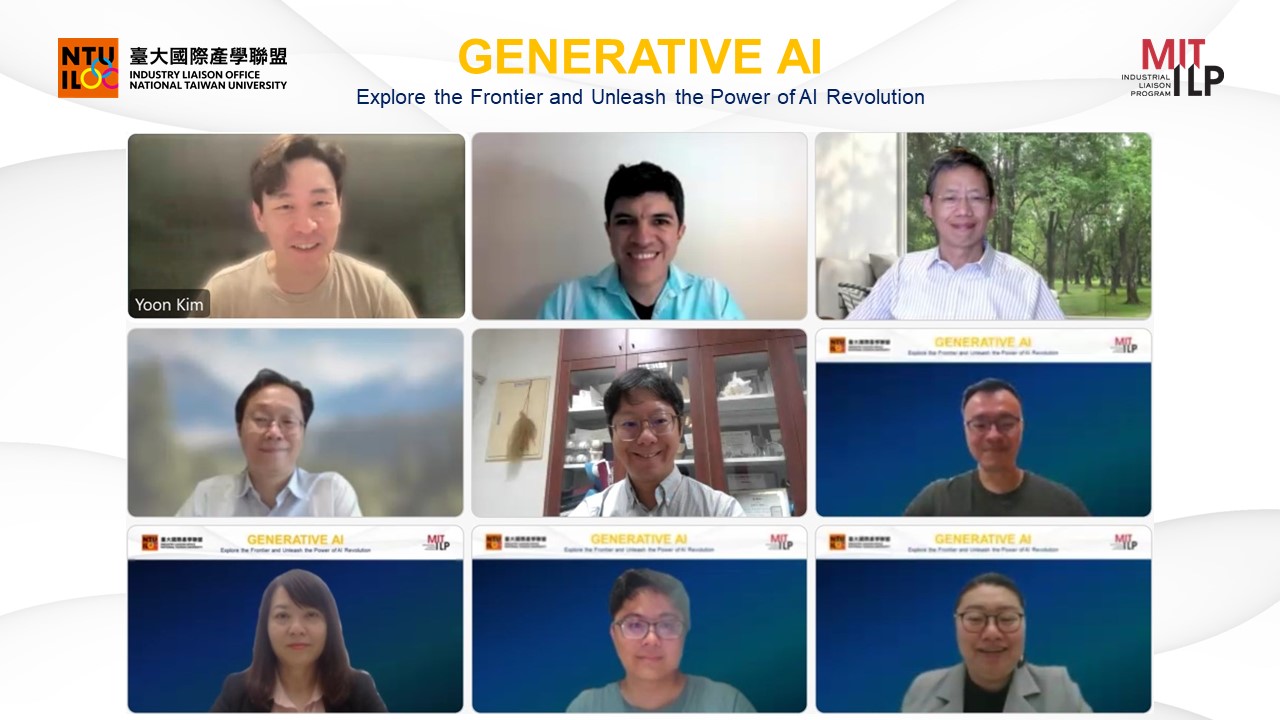With the development of technologies such as big data, cloud infrastructure, and semiconductors, artificial intelligence has made revolutionary breakthroughs in many domains. On August 10, National Taiwan University and the Massachusetts Institute of Technology invited experts from both institutions to focus on generative artificial intelligence in an online seminar, exploring its innovations and potential applications. The event gathered over four hundred attendees from industries, academia, and research organizations. In his welcome speech, Professor Chung-Chih Wu, Director of the Industry Liaison Office and VP of the Office of Research and Development, NTU, expressed his recognition of the vigorous development of artificial intelligence, saying: "Research in AI has grown rapidly in the past few years. It is undoubtedly the core technology of many technologies. Generative AI has already changed our lives. The future applications are beyond our imagination. We need interdisciplinary collaboration and communication to further the development of AI, which is the driving force behind today's seminar."

Photo 1: Group photo of workshop speakers and guests
The seminar started with a presentation by Armando Solar-Lezama, Distinguished College of Computing Professor in the MIT Schwarzman College of Computing, MIT. He talked about his research in programming with learning, which involves a combination of data, natural language, and interactive engagement with the system. He further explored the challenges and techniques of keeping the advantages, including modularity, maintainability, and extensibility when replacing the traditional approach of producing software with large neural networks. Next, Yoon Kim, Assistant Professor from MIT Department of Electrical Engineering and Computer Science, discussed the new paradigm in natural language processing heralded by large language models. As such natural language processing models are resource-intensive, he thus introduced his work in improving the training and deployment efficiency of large language models.
In the second half of the seminar, Associate Professor Hung-Yi Lee from the Department of Electrical Engineering, NTU presented his latest research on the speech version of ChatGPT. He discussed how to enable machine learning and build speech language models by using extensive voice data. He also introduced the applications and outlined the challenges and potential solutions. Following this, Professor Hsuan-Tien Lin from the Department of Computer Science and Information Engineering, NTU discussed the recent attention from the academia and industry on generative models caused by their exceptional ability to produce high-quality images. Professor Lin elaborated on his research in improving the controllability of generative models. He also shared some design strategies to facilitate successful conditional generation.
During the seminar, the four experts presented diverse perspectives on the development of generative AI, offering insights and inspiration across disciples. The moderator, Professor Yu-Chiang Wang from the Department of Electrical Engineering, NTU, said in his conclusion, "The captivating presentations by the speakers and the enthusiastic exchanges among participants and speakers have opened up numerous possibilities for communications and collaboration." This event is more than a convergence of professional knowledge. It is also a bridge connecting academia, industry, and research institutes, which is expected to bring more innovative sparks in AI research and application.